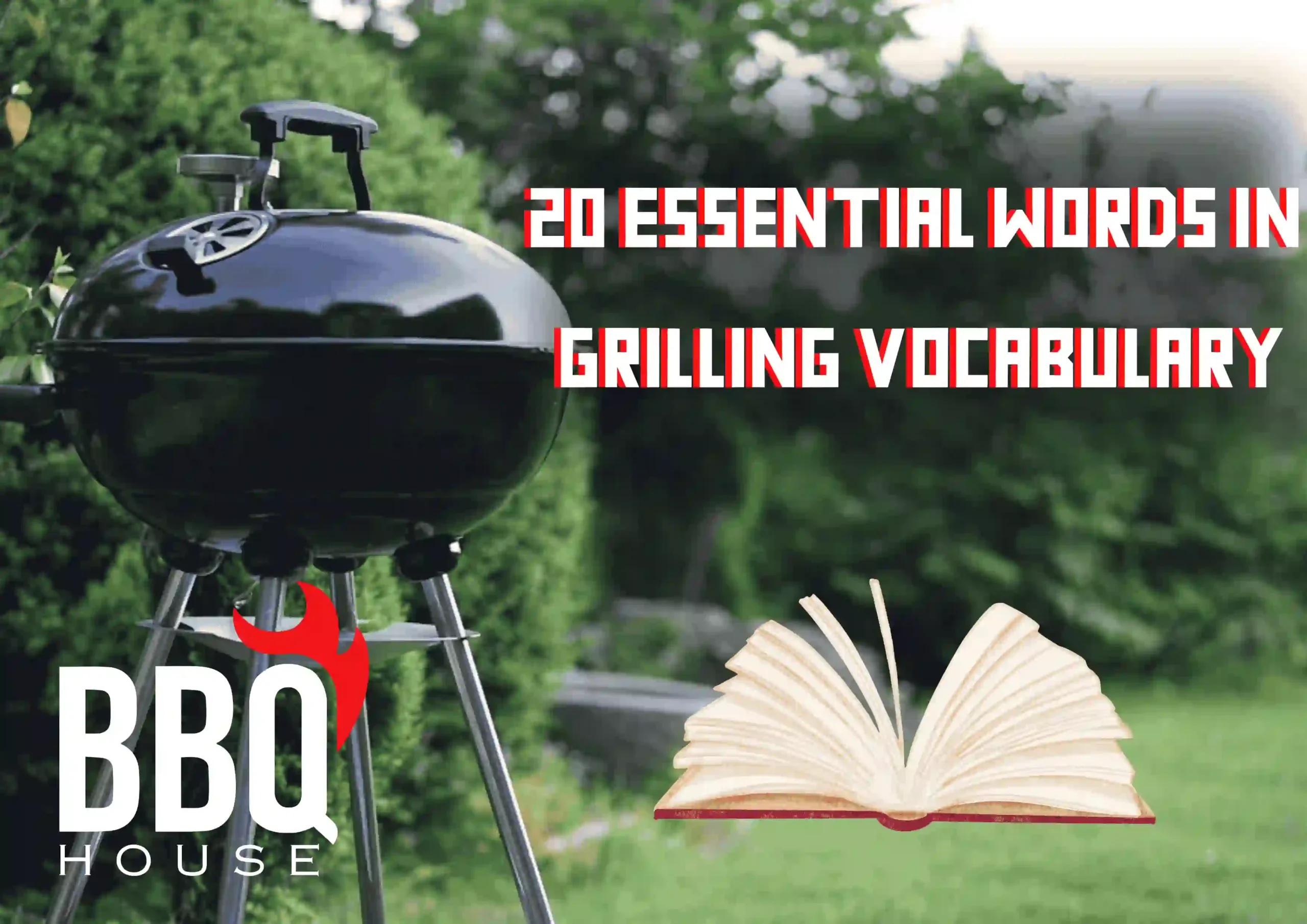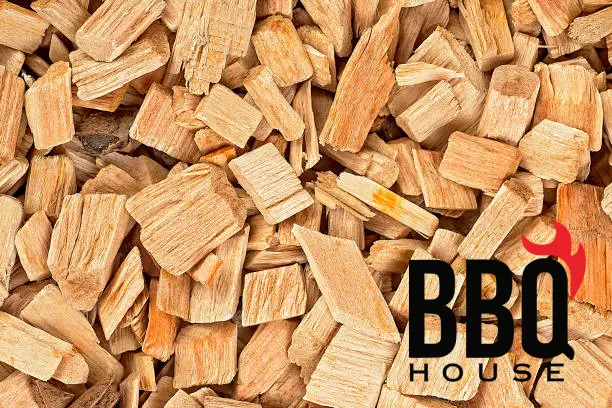Welcome to BBQ House!
20 Essential grilling vocabulary words you should know

If you’re stepping into the world of barbecue, smoking, or outdoor cooking, you’ll quickly realize that grilling has its own language. From “indirect heat” to “reverse sear,” understanding the essential grilling vocabulary is key to mastering techniques, choosing the right Equipment, and even communicating confidently with fellow grillers.
This guide will walk you through the most important grilling terms, their meanings, and how to use them in practice. Whether you’re a beginner or an experienced pitmaster looking to brush up, this glossary will give you the words and confidence you need.
The Ultimate Grilling Vocabulary Glossary
Here’s a breakdown of the most common and essential grilling terms every BBQ enthusiast should know:
1. Direct Heat
Cooking food directly over the flame, coals, or heat source. Ideal for burgers, steaks, kebabs, and foods that cook quickly.
Usage: “For those juicy burgers, use direct heat to sear them quickly.”
2. Indirect Heat
Cooking food away from the heat source, usually with the grill lid closed. This method mimics oven-style cooking, great for large cuts of meat like roasts or whole chickens.
Usage: “Use indirect heat to slowly cook a brisket without burning it.”
3. Searing

The process of cooking food at very high heat to create a browned, flavorful crust. Often used before or after cooking meat through another method.
Usage: “Always sear your steak to lock in flavor.”
Sizzle
That mouthwatering sound when food hits a hot grill. For many grill enthusiasts, it’s the sound of summer itself.
Usage Example: “The steak hit the grill with a loud sizzle, promising a perfectly seared crust.”
Basting
Brushing or spooning sauce, butter, or juices over food while it cooks to keep it moist and flavorful.
Usage Example: “The chef kept basting the chicken with a garlic butter sauce to lock in the juiciness.”
4. Reverse Sear
A technique where meat is cooked slowly over indirect heat and then seared over direct heat at the end. Popular for thick steaks and roasts.
Usage: “Try a reverse sear for perfect medium-rare ribeye.”
5. Smoking
Cooking food slowly at a low temperature with wood smoke for flavor. Different wood chips—like hickory, mesquite, apple, or cherry,add distinct tastes.
Usage: “He’s smoking ribs with hickory wood for that deep, bold flavor.”
6. Wood Chips vs. Wood Chunks

- Wood chips: Small pieces that burn quickly, used for short cooks.
- Wood chunks: Larger pieces that smolder for hours, ideal for long smoking sessions.
Usage: “For pulled pork, use wood chunks instead of chips to maintain smoke longer.”
7. Charcoal Grill
A grill fueled by charcoal briquettes or lump charcoal, prized for smoky flavor.
Usage: “Nothing beats the flavor from a charcoal grill.”
8. Gas Grill
A grill powered by propane or natural gas, known for convenience and precise temperature control.
Usage: “She prefers her gas grill for weekday dinners.”
9. Hybrid Grill
A combination of charcoal and gas grilling, giving versatility for both convenience and flavor.
Usage: “The BBQ House Gas2Coal® is a popular hybrid grill.”
10. Grates
The metal surface where food is placed for cooking. Grates can be stainless steel, cast iron, or porcelain-coated.
Usage: “Clean your grates after every use to prevent sticking.”
follow us on INSTAGRAM and FACEBOOK for more grilling info
11. Heat Zones
Creating areas of direct and indirect heat on a grill for versatile cooking.
Usage: “Set up two heat zones for searing and slow cooking at the same time.”
12. Flare-Up
A sudden burst of flame caused by dripping fat or marinade hitting the heat source.
Usage: “Watch out for flare-ups when grilling fatty meats.”
13. Marinade

A liquid mixture of herbs, spices, oil, and acid (like lemon juice or vinegar) used to flavor and tenderize meat before grilling.
Usage: “Let the chicken sit in a marinade overnight.”
14. Dry Rub
A blend of spices and seasonings rubbed directly onto meat before cooking.
Usage: “The brisket was coated in a smoky paprika dry rub.”
15. Basting
Brushing or spooning liquid (like melted butter, sauce, or juices) onto food while it cooks to keep it moist.
Usage: “Keep basting the ribs with sauce for maximum flavor.”
16. Resting
Allowing grilled meat to sit after cooking before cutting, so juices redistribute.
Usage: “Always let steak rest before slicing.”
17. Pitmaster
A skilled person who specializes in BBQ and smoking techniques.
Usage: “He’s the neighborhood pitmaster, always manning the grill.”
18. BBQ vs. Grilling
- BBQ: Slow-cooking with low heat and smoke.
- Grilling: Fast-cooking over high heat.
Usage: “People confuse BBQ and grilling, but they’re different techniques.”
19. Smoking Woods (Flavor Vocabulary)
- Hickory: Strong, smoky, bacon-like.
- Mesquite: Bold, earthy, best for red meats.
- Applewood: Sweet, mild, great for chicken.
- Cherrywood: Fruity, adds color and light sweetness.
Usage: “Choose the right smoking wood for your recipe.”
20. Carryover Cooking
The phenomenon where meat continues to cook from residual heat even after it’s off the grill.
Usage: “Account for carryover cooking when aiming for medium rare.”
Why Grilling Vocabulary Helps You Become a Better Cook
- Communicate clearly with recipes, chefs, and fellow grillers.
- Choose the right techniques for different cuts of meat.
- Avoid common mistakes like burning, undercooking, or drying out food.
- Impress guests with both your cooking and your knowledge!
Pro Tips for Expanding Your Grilling Vocabulary
- Watch cooking shows or YouTube pitmasters.
- Read grilling guides (like BBQ House’s blog on the history of grilling & BBQ).
- Practice different techniques,like reverse sear or indirect heat,until they become second nature.
FAQs About Grilling Vocabulary
Q1: Why is grilling vocabulary important for beginners?
A: It helps you understand recipes, instructions, and techniques more clearly, making cooking easier and more successful.
Q2: What’s the difference between BBQ and grilling?
A: BBQ is slow and smoky, grilling is fast and hot. Both are delicious but require different methods.
Q3: Which grilling term do most beginners struggle with?
A: Many confuse direct vs. indirect heat,knowing when to use each is essential.
Q4: Do different woods really make a difference in flavor?
A: Yes, each type of wood adds unique flavor notes, from sweet and fruity to bold and smoky.
: Speak the Language of the Grill
Mastering the grilling vocabulary is like learning the grammar of outdoor cooking. Once you understand these essential terms, you’ll be able to follow recipes with ease, experiment with confidence, and elevate your grilling game to pitmaster level.
So, next time you fire up the grill, remember,you’re not just cooking food, you’re speaking the universal language of flavor, smoke, and fire.




